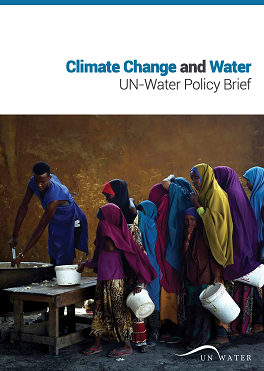UN chooses nature and climate change as theme for World Water Day 2020
- January 22, 2020
- Posted by: administrator
- Category: Environmental, Global, Water Issues

The UN has selected ‘Nature and Climate Change’, as the theme for this year’s World Water Day on 22nd March which explores how water and climate change are inextricably linked.
The UN says that climate policy must address water across all sectors of the economy and the environment to ensure a climate-resilient and sustainable future for all.
According to its policy brief on climate change and water, the global climate change crisis is inextricably linked to water and is calling for barriers to increased access to climate finance, such as lack of capacity and lack of institutional coordination, to be urgently addressed.
The briefing says climate change is increasing variability in the water cycle, leading to extreme weather events, reducing the predictability of water availability and decreasing water quality.
The growing global demand for water is also increasing the need for energy-intensive water pumping, transportation and treatment, and has contributed to the degradation of critical water-dependent carbon sinks such as peatlands. In addition, some climate change mitigation measures, such as expanded use of biofuels, can in fact further exacerbate water scarcity.
National and regional climate policy and planning must take an integrated approach to climate change and water management, according to the UN.
“Increased water stress and meeting future demand will require increasingly tough decisions about how to allocate water resources among competing water uses, including for climate change mitigation and adaptation activities. If a sustainable future is to be created, continuing along a “business as usual” pathway is no longer an option, and water management needs to be scrutinized through a climate-resilience lens.” the policy paper says.
According to the UN, increased investment is needed in improving hydrological data, institutions and governance, education and capacity development, risk assessment and knowledgesharing.
Adaptation plans also need to incorporate targeted strategies that assist lower-income populations – those who are disproportionately affected by climate change impacts – to navigate new conditions.
The UN is warning that uncertainty about the future cannot be an excuse for inaction today, saying that if the world is to limit global temperature increases to well below 2°C, we must act immediately.
“Continuing along a “business as usual” pathway is no longer an option, and water management needs to be scrutinized through a climate-resilience lens.” The paper says.
Click here to download the UN Policy Brief on water and climate change
